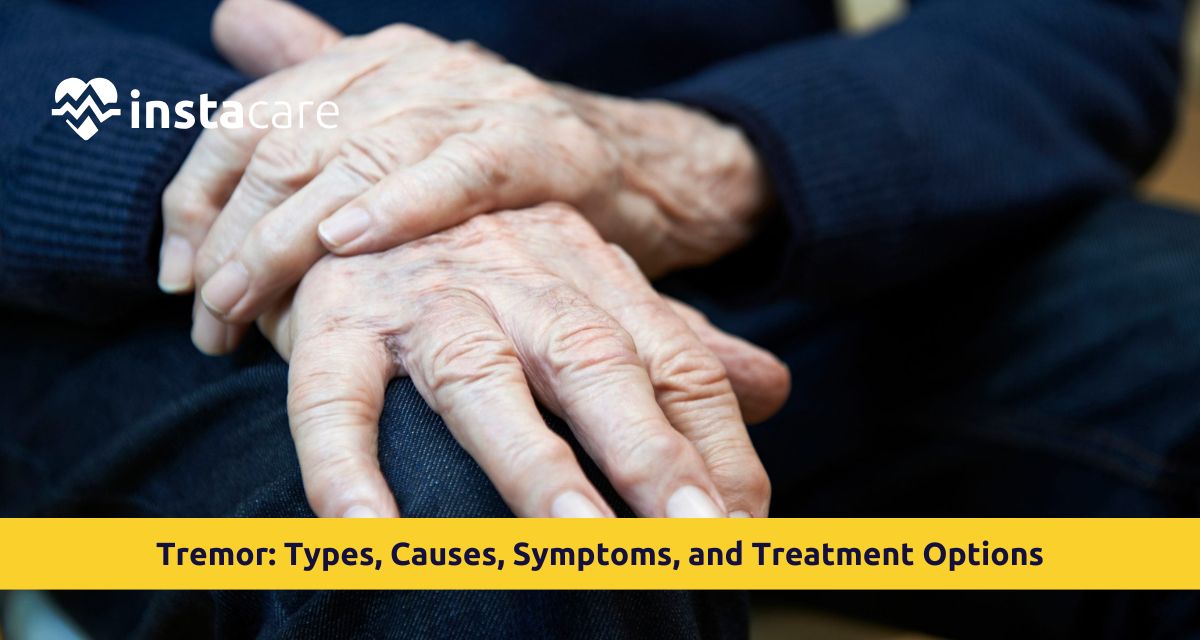What Is a Tremor?
Tremor is a rhythmic, involuntary movement of a muscle with back-and-forth oscillation of one or more portions of the body. Tremor is present with movement or at rest and intermittently or constantly. Tremor can be extremely light and hard to find or so disabling that it interferes with the performance of daily activities such as eating or writing.
These are mostly eurhythmy vs tremor. eurhythmy can be related to many disorders (e.g., fever, fear), eurhythmy while tremors form a particular type of neurological movement disorder with specific patterns and classifications.
Various Types of Tremors
There are many types of tremors with etiology, characteristics, and possible treatments. The most significant ones are:
Essential Tremor
The most common one is essential tremor. Essential tremor primarily affects the hands, but also the voice and head. It is typically hereditary and worsens with movement (action tremor).
Parkinson's Tremor
It results from Parkinson's disease and is typically a rest tremor, which occurs when muscles are resting. It typically affects one side of the body, and often the hands, and may have a "pill-rolling" quality.
Intention Tremor
Present during voluntary movement, i.e., a movement to grasp a target, and increasing in amplitude as the hand approaches the target in cerebellar disease.
Physiologic Tremor
A mild, usually not noticeable tremor in all healthy individuals. It is temporarily accentuated by
stress, fatigue, caffeine, or drugs.
Dystonic Tremor
In dystonic patients, an awkward posture movement disorder, the tremor is abnormal and improves with sensory tricks such as stroking the affected part.
Orthostatic Tremor
It is an extremely rare condition with rapid muscle spasms of the trunk or legs on standing that frequently ceases once the individual sits or walks.
Some Causes of Tremors
Education of the causes of tremors will enable patients to make proper diagnoses and be properly treated. Tremors can be categorized into broad categories of neurological, metabolic, and situational etiologies:
- Neurologic Disorders: Tremors are a symptom of multiple sclerosis, Parkinson's disease, and stroke.
- Hereditary: Essential tremor is passed down.
- Drugs: Lithium, valproate, and stimulants are a few examples of medications for tremors.
- Withdrawal: Shaking may occur spontaneously as a result of alcohol or drug withdrawal, such as benzodiazepines.
- Stress and Anxiety: Particularly in those with panic disorder, tremors and anxiety are copathic.
- Overactive Thyroid (Hyperthyroidism): neurological tremors are caused by hypermetabolism.
- Low blood sugar, hunger, or exhaustion can cause a brief, mild tremor, particularly in the hands.
Common Symptoms of Tremor
Tremor symptoms are more commonly encountered. Symptoms that vary with the type of tremor but are generally recognized include the following:
- Hand, arm, leg, head, or vocal rhythmic tremor
- A shaky handwriting grip or an inability to grip eating utensils
- Quivering speech
- Exacerbation of the tremors during movement (intention tremor) or, conversely, at rest (resting tremor)
- In some cases, it may be accompanied by weakness of the muscles or difficulties with coordination.
- Stress or fatigue-induced tremors
Ask all your friends: closely note the frequency, duration, and site of occurrence of each tremor, as it helps clinically toward a diagnosis.
Diagnosis of Tremor
If you’re experiencing tremors, early tremor diagnosis is essential to rule out serious neurological issues. Here's what a typical diagnostic process may involve:
Physical Exam and Medical History
Your doctor will inquire regarding your family history, when your symptoms started, medications, and habits such as use of alcohol or caffeine.
Neurological Exam
The test involves testing of reflexes, muscle power, coordination, and sense to determine the type and etiology of the tremor.
Blood Tests
To exclude metabolic conditions like thyroid and vitamin deficiency.
Imaging Tests
MRI or CT scans can detect structural defects in the brain that result in tremors.
Electromyography (EMG)
It detects muscle electrical activity and helps differentiate between tremor types.
An accurate diagnosis needs to be made to formulate the proper tremor treatment.
Treatment of Tremor
There isn't a single treatment but multiple treatments that are able to reduce or control symptoms:
Tremor Medications
- Beta-blockers (e.g., propranolol): Often prescribed for essential tremors.
- Anti-seizure drugs (e.g., primidone): Beneficial for certain types of tremor.
- Benzodiazepines: Beneficial if anxiety is a causative factor.
- Levodopa: Extremely typical of Parkinson's tremor.
Botox Injections
Beneficial for head, voice, or hand tremors, especially dystonic tremors.
Physical Therapy
Strengthens muscle control, coordination, and strength. Occupational therapists can teach to modify daily activities.
Deep Brain Stimulation (DBS)
Reserved for Parkinson's or essential tremor not responsive to medication. Places electrodes in brain to manage defective signals.
Lifestyle Changes
- Reduced alcohol and caffeine
- Learn stress-reduction techniques like yoga or meditation
- Use weighted utensils or aides
Treatment of Underlying Disease
Treatment of the underlying disease can halt tremors if due to hyperthyroidism or medication side effects.
Conclusion
Disruptive, emotionally distressing, and affecting normal functioning, tremors can be. Fortunately, however, with correct diagnosis and effective treatment of tremors, the great majority have the choice of managing or at least reducing their symptoms. There is only the right kind and source of tremor-from essential tremor to Parkinson tremors.
Don't ignore it, especially if your hands shake or trembles involuntary, or repeated episode happens: it gets in the way of or disturbs your way of living. If you or a loved one has tremors, get an evaluation with a neurologist that may provide the best diagnosis for the condition.
Please book an appointment with the
best Neurologist in Lahore, Karachi, Islamabad, and all major cities of Pakistan through
InstaCare, or call our helpline at 03171777509 to find a verified doctor for your disease.

